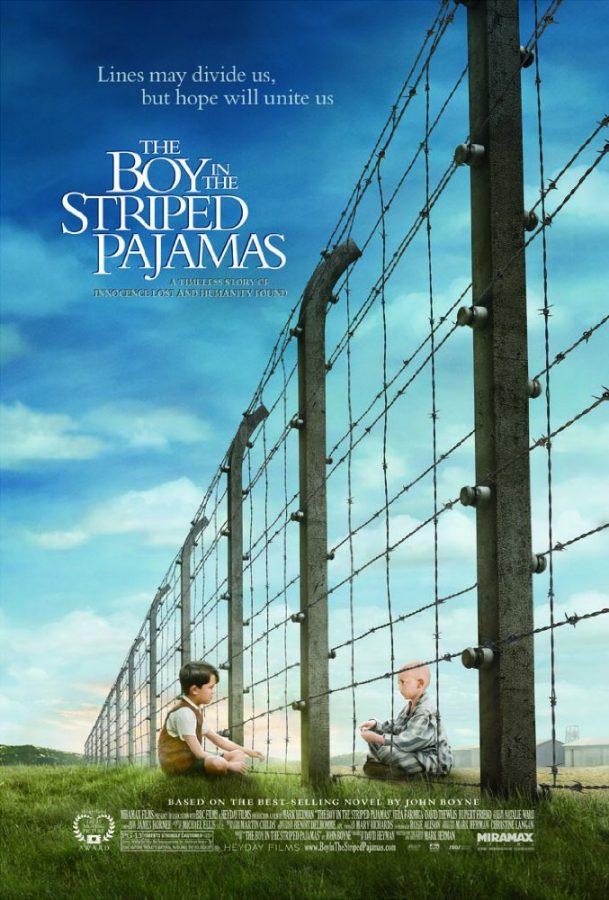Hot on Netflix: ‘The Boy in the Striped Pajamas’ decently shows complexities of Holocaust
November 15, 2016
The Boy in the Striped Pajamas is rather an older film that uses a young boy’s perspective during WWII to create a story with a message that is still relevant in any time period.
In a Nazi Germany setting, 8-year-old Bruno has to move with his family from his nice home in a city to a cold mansion in the countryside, as his father’s promotion as a Nazi officer has required. After moving, Bruno notices a “farm” and “farmers who wear striped pajamas” from his new bedroom window. However, when questioning the adults about it, he gets evasive answers. This only prompts Bruno to see the farm for himself.
There he meets Shmuel, a boy the same age as Bruno, who is quite laconic, especially when inquired about what he does on the farm. Eventually, Bruno’s father tells his children about the people on the farm and explains that they are Jews, an enemy “who aren’t really real people.” Regardless, Bruno and Shmuel continue to form a rare friendship that eventually makes Bruno confused about his father’s job. However, this questioning is not marked by a loss of innocence. Rather, it is the child’s innocence that makes the message of this movie effective. Bruno’s conflicting thoughts about what he is told about Jews and his friend in Shmuel is contrasted by the certainty and obedience in his older sister, who is quick to accept the propaganda as if it were a virus.
Some critiques of the movie often find fault with the historical inaccuracy of certain scenes, such as how there are no guards in the location Bruno and Shmuel meet. It’s true that this kind of friendship is one that may never have chanced in realistic circumstances, but it is the exploration of such a chance that makes the story touching. This is not a movie about retelling the Holocaust, but a work of fiction about the normalizing of underlying evils.
Bruno is puzzled by the contradictions in his family and other officers telling him Jews are bad, even though Shmuel is good; that his sister agrees with the Nazi officers despite never interacting with a Jew; and why Shmuel is so dour about living in the camp even though a film Bruno saw shows that the Jews supposedly have nice living arrangements on camp.
The filmmakers do an excellent job encouraging the audience to watch this tragic tale unfold using a childlike perspective. Bruno’s innocence allows him to find a friend without prejudice, but by doing so, he also sees people whom he once held in high regard appear to be incorrect about their words.
Overall, this is a decent movie that, using an innocent main character, shows the complexities of morality and prompts the audience to question whether or not there are any evils that are or were accepted simply because of how normalized it is.







